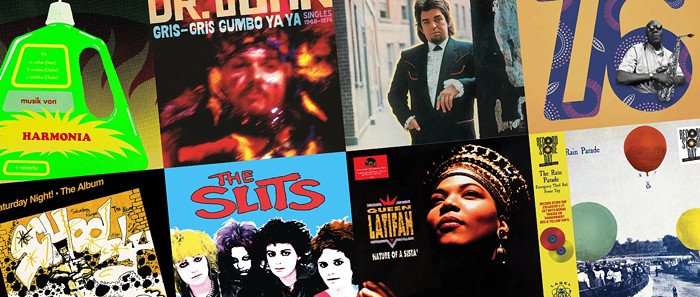"I Need a Life (Four Tet Remix)"
by Born Ruffians
(Warp)
You know how a couple months ago a lot of people with cotton in their ears and vague memories in their brains were embarrassing themselves by saying that Vampire Weekend resembles Graceland? (Which it does only if you're completely unfamiliar with the Congolese music from which VW take their cues.) Well, here's a record that really does sound like Paul Simon. Toronto trio Born Ruffians' original "I Need a Life" does that well enough—singer-guitarist Luke Lalonde's voice has a definite similarity, though slightly rougher and more excitable. But it's when Kieran Hebden, aka Four Tet, gets his mitts on this track that things get even more Simonized. He recasts it from indie-busker guitar-bass-drums to a hard-pinging keyboard riff and layers Lalonde's wordless syllables to form a vocal so eerily Simon-like that you'd be forgiven for thinking it was in fact Paul recasting himself with those weird laptop kids the way he once did with South African township jive. And you'd be right to think the result is a great record.
"Entropy Reigns (Pearson and Usher's Second Law Instrumental)"
by Kelley Polar
(Environ)
As a vocalist and songwriter, Kelley Polar is a really good orchestral arranger. So it stands to reason that "Entropy Reigns," from his recent second album, I Need You to Hold on While the Sky Is Falling, is improved by taking his voice out of it. But Ewan Pearson and Al Usher do a lot more than that here; they transform a warmly homemade synth- pop song into a sharp-stepping, vaguely Latinized disco march, led by strings as sharp as anything Chic engendered. If you know and love Faze Action's string-quartet disco-house classic "In the Trees" as much as you ought to, think of "Second Law Instrumental" as its lightly robotic makeover.
"Radio Heart"
by the Futureheads
(Nul)
Their 2004 debut sounded like the best XTC album in 25 years, their second like a lesser retread, and now they've settled in and turned themselves into smart pros with occasional bouts of inspiration. This single is probably the pro speaking more than the inspiration: It's such a perfectly calibrated replica of 1979–81 radio-ready new wave it makes you step back a little even after it grabs you. But grab you it does, particularly the audible tape splice at 2:25. Well, not really—no one uses tape anymore (and running a new DIY label probably doesn't permit them the time or budget for it anyway), but their evoking it tells you just how gratifyingly detail-oriented their genre exercises can be.


















